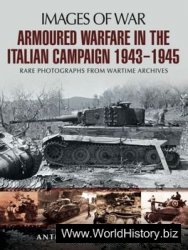The emperor is credited with being one of the reasons behind the East-West Schism in the Christian church, although he may not have done it intentionally. The disagreement has to do with a very important statement in the Nicene Creed, called the filioque. The Visigoths believed the Holy Spirit came from God the Father and Son (the Son part is the Filioque), and the Franks inherited that tradition. Charlemagne, upon the advice of his religious advisors, thus challenged the Council of Constantinople’s proclamation of 381 that the Holy Spirit proceeded from the Father alone.
Pope Leo III rejected Charlemagne’s challenge and stubbornly had the Nicene Creed carved into the doors of Old Saint Peter’s Basilica without the offending phrase, as if that would make the king’s challenge less weighty. The Franks, of course, ignored such a gesture, and their insistence on the filioque led to years of poor relations with Rome. The Roman Church was later persuaded by Charlemagne’s argument and adopted the phrase in its version of the Creed. This, in turn, contributed to the dispute between Rome and Constantinople.
In honor of Charlemagne, the city of Aachen has, since 1949, awarded an international prize (called the Karlspreis der Stadt Aachen) annually to “personages of merit who have promoted the idea of western unity by their political, economic and literary endeavours.” Winners include Count Richard Coudenhove-Kalergi, the founder of the pan-European movement; Alcide De Gasperi, a founding father of the European Union; and the British prime minister Winston Churchill.
The most valuable and lasting aspect of Charlemagne’s life that we have inherited is the idea of “Europe” as a core concept of geography, history, art, science, politics, and religion. As Derek Wilson puts it:
Over and over again, throughout all the centuries that followed—during which warrior barons and the leaders of nation-states who succeeded them fought to extend or defend their boundaries—bards, kings, political theorists and artists appealed to Charlemagne to justify their actions and support their ideas. A luxuriant myth grew out of the seed of ninth-century reality, putting out new shoots in every generation. Thousands of stories were added to the Charlemagne corpus. He became for different ages a saint, a crusader, the model of chivalry, a cultural icon, a champion of civilization, an exemplar for absolutist monarchs but also an advocate of democracy, a focus of national pride but also the supreme internationalist. Charlemagne—man, monarch, and myth—cannot be disentangled from the story of Europe. (3-4)
I wrote at the beginning of this chapter that Charlemagne is one of those icons whose name is better known than his accomplishments. Yet his accomplishments are in evidence all around us, because what Charlemagne stood for was essential to the development of our Western civilization. When we think of Western art, politics, culture, economics, and most importantly the Christian faith, we should think of Charlemagne.




 World History
World History









